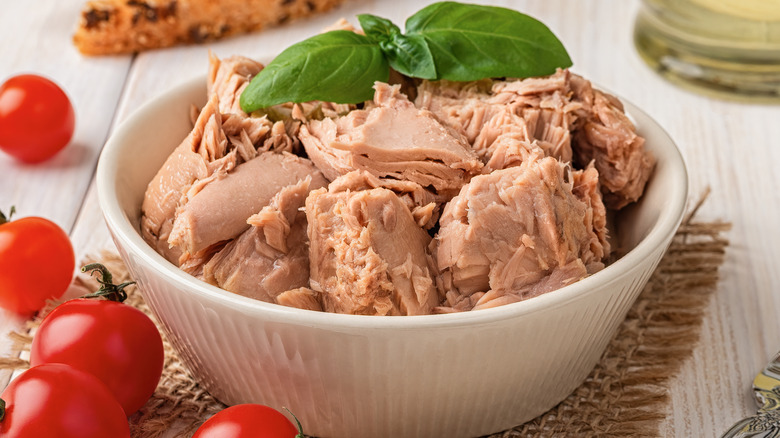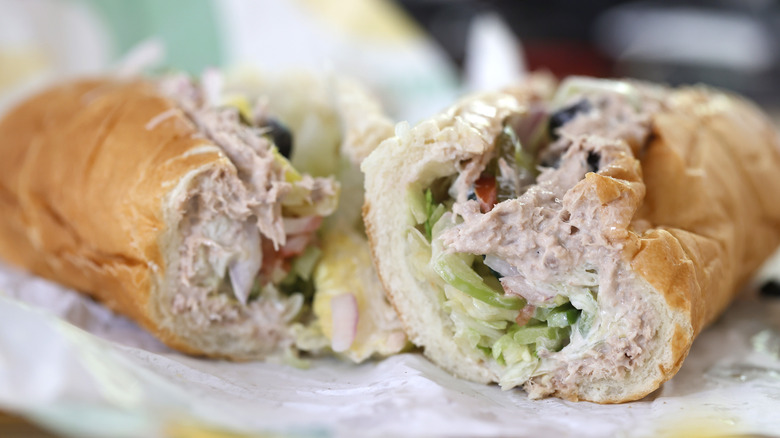People Still Aren't Convinced Subway's Tuna Is Real
Going to lunch and ordering a sandwich should be simple. When you order a tuna sandwich, you get fresh and delicious tuna. But what if what's served to you is not actually made of the advertised fish? This highly concerning scenario is not hypothetical, and might be happening every day to customers at Subway restaurants across the country.
Subway is in hot water yet again for its supposedly fake tuna. After being sued once, another lawsuit has been filed concerning their popular tuna sandwich. Allegations that it is not made with high-quality fish, but rather "a mixture of various concoctions" were the grounds for the initial lawsuit that was filed in January (via Washington Post). After a menu overhaul and marketing rebrand over the summer that improved sales at Subway restaurants, it seemed like the sandwich shop chain might have been in the clear (via QSR Web).
As the allegations about their tuna resurface, it's apparent that people still don't fully believe that real tuna is being used on the sandwiches. The latest lawsuit claims Subway is scamming customers "into buying premium-priced food dishes based on the representation that the tuna products contained only tuna and no other fish species, animal products, or miscellaneous ingredients," which would be an issue if the advertising and labeling don't align with how the tuna is really made, reports Business Insider. See all the details below.
The new lawsuit over Subway's tuna
Following the previous lawsuit's dismissal in October, the new lawsuit is being brought against Subway by the same plaintiffs, who have amended the previous lawsuit and refiled (via Business Insider).
Going further than the Tuna Sandwich lab report ordered by The New York Times, the lawsuit includes new testing conducted by Barber Lab at UCLA's Department of Ecology and Evolutionary Biology on tuna samples taken from 20 different Subway restaurants (via Washington Post). The scientists did not detect any tuna DNA in 19 of the 20 samples. Instead, the researchers found chicken DNA in all samples, pork DNA in 11 samples, and cattle DNA in seven of the supposed tuna samples. The lawsuit claims that Subway advertises tuna to its customers, and that does not appear to be what they get.
It also notes that all the tuna at Subway restaurants across Southern California comes from the same supply chain, which could account for adulteration at all those locations, but that Subway does "not take sufficient measures to control or prevent the known risks of adulteration to its tuna products ... they actively perpetuate actions and steps that encourage mixing or allowing non-tuna ingredients ... into the tuna products." The restaurant then charges a premium price based on the presumption high-quality tuna is used, according to the lawsuit.
Subway maintains that its tuna products are not made with other proteins.

